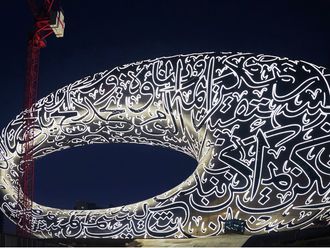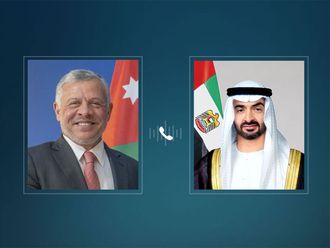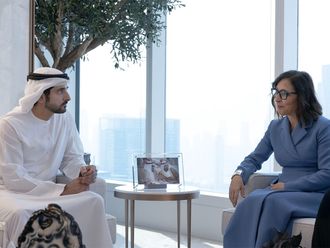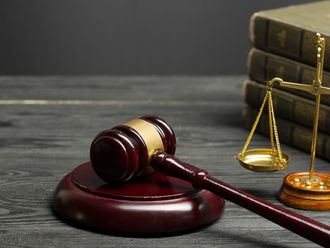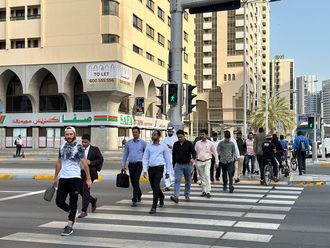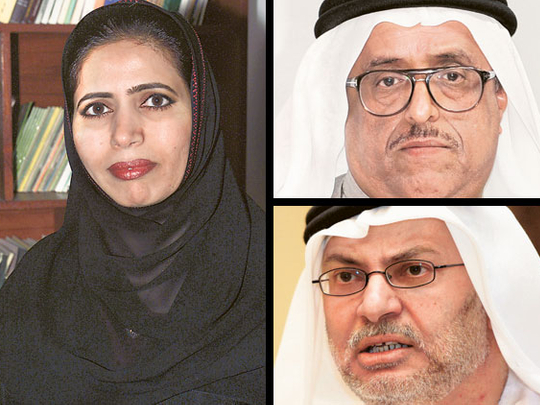
Dubai: The Federal National Council (FNC) must have more powers to scrutinise the government and take part in the decision- making process rather than just submitting recommendations that may or may not be implemented, a top official said yesterday.
"If the next FNC will be typically like the previous legislatures, it will be useless and we have little concern for extending the voting rights to more Emiratis," said Lieutenant General Dahi Khalfan Tamim, Dubai Police Chief.
Writing in Al Khaleej Arabic daily, Dahi demanded moving on to a full-fledged legislature to help it play its role in supporting social, economic and political development.
"The issue is not all about increasing the number of voters, rather it's about powers of the legislature. At present, powers of the FNC are pointless for citizens of the UAE," Dahi said, stressing: "our previous legislatures were useless, like flogging a dead horse."
On September 24, half of the 40-member council will be elected by an electoral college, which is to be at least 300 times the number of its representatives. The 20 remaining legislators will be appointed by the Rulers of the emirates.
Expanding the electoral college, in keeping with the directives of President His Highness Shaikh Khalifa Bin Zayed Al Nahyan, will enrich the political environment in the country and promote political participation, Dr Anwar Gargash, Minister of State for Foreign Affairs and Federal National Council Affairs, had said recently.
Political participation
Dr Gargash said increasing the number of electoral colleges will promote political participation.
"It reflects the spirit of the political programme of UAE and we expect that the electoral colleges will bring in more expertise, representing the significant evolution of the UAE society. The latest developments in the region validate the wise approach adopted by the UAE leadership to make sure that change is in perfect harmony with progress," he said.
Dr Gargash, who is also the chairman of the National Election Committee (NEC), stressed the importance of consolidated efforts to make sure that the upcoming elections to the FNC reflect the UAE leadership's vision to advance political participation and the FNC experience.
Although he called for equality among citizens, Dahi did not go as far as to suggest universal suffrage. He however sought to focus on legislative powers, including no-confidence motions to dismiss "inefficient ministers", a say in distributing national wealth to citizens and freedom to debate issues of concern to the public. Dahi said any strategic industrial, trade, real estate, investment, financial or military deal must be pre-approved by the House to safeguard public money.
"The FNC should not be in dispute with the government, yet it should not be a government-controlled House, but one representative of the people."
Dahi expressed his views following a controversial petition signed by political activists calling for greater democracy in the country.
Dr Ebtisam Al Kitbi, professor of Political Science at UAE University, and a signatory of the petition, told Gulf News the government had not rejected the petition but observed that some of the political activists lacked prudence and sound judgment to open a national dialogue on the petition.
"Using a media campaign and exercising pressure on the government was not the right way to address the issue of democracy in the UAE," Dr Al Kitbi said.
Political liberalisation in the UAE received a boost with the first elections to the country's legislature in December 2006. The elections, however, represented only a small step in terms of political empowerment as only about 6,600 Emiratis were able to cast their vote.
Members of the FNC have repeatedly demanded universal suffrage and more powers for the legislature, but recently made the extension of voting rights to growing numbers of Emiratis their central demand.
The FNC, Dahi said, should debate any issue of concern to the homeland and citizens. "The House has been granted only limited powers, with members complaining that only issues approved by the government be discussed, despite the fact that the constitution grants the right to free expression.
The House has been representing the government and not the people. We need a house representative of the people with an agenda [that] addresses the people's concerns, not only those of the government."
In an address to the nation marking the end of the polling process in 2006, Shaikh Khalifa said while the FNC had in the past helped the government in achieving legislation and addressing many issues, its role would be expanded in the coming era "to enrich and develop our parliamentary experiment".
Shaikh Khalifa urged the government "to provide the appropriate atmosphere to allow the FNC to exercise its role as a bridge between citizens and the state institutions and its executive and administrative leaders."


